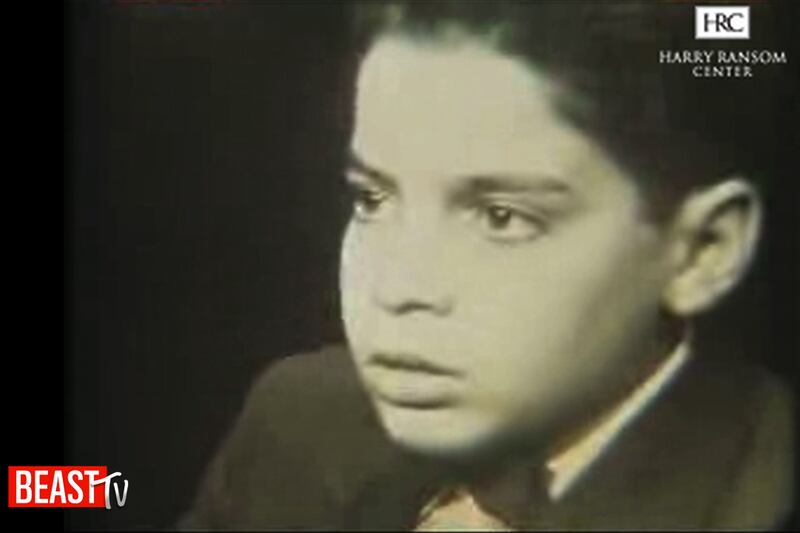Mike Wallace’s death last weekend, at 93, got me thinking about my godfather.
A couple of years ago, a stranger sent me a link to the Dec. 21, 1957, episode of The Mike Wallace Interview. Wallace’s featured guest was Leonard Ross, a 12-year-old prodigy who had recently found fame after winning $164,000 on two quiz shows. Two decades later, Leonard Ross would become my godfather.
The scene appears to be right out of Leave It to Beaver—Lenny wore a buzz cut and a bow tie, while a young Wallace sat smoking (and shilling for) Marlboros and generally treating a young boy like a hostile foreign dignitary. Again and again, Wallace hits Lenny with questions about whether he has a “freak” memory, whether he spends time with friends or does other “normal” things, even whether he would “die an idiot.”
The amazing part was that Lenny didn’t flinch. He parried every question and implication that Wallace threw at him with equanimity, humility, politeness, and even humor. Even as Wallace literally blew smoke at him, Lenny spoke fluently about current presidential politics, education policy, and his personal life.
Wallace had met Lenny when he hosted The Big Surprise, one of the quiz shows he appeared on. Perhaps that’s why Wallace knew the boy could handle his aggressive brand of interviewing. Over the years, as we have been repeatedly reminded this week, countless politicians, celebrities, and power brokers buckled under Wallace’s withering assaults, but for nearly half an hour, Lenny remained poised, genuine and funny. Wallace had met his match in a 12-year-old kid.
By the time I saw the footage, I already knew some things about Lenny: he’d gotten a ham-radio license at age 7, started college at 14, and Yale Law School three years later. His brilliance was well-regarded throughout his life—in his early 30s he served in the Carter Administration—but as he got older he was engulfed by a struggle with manic depression. When he was 39, he drowned himself in a hotel pool in California.
In the interview, Wallace didn’t soft-pedal around the possible risks for Lenny in being so smart. He pushed him to address it, even quoting Lenny’s mother as saying, “I can’t help worrying a little bit about him. So many children like him have come to really miserable ends.”

Lenny was, characteristically, unfazed by this remark, but as it turned out, Wallace’s question was prescient.
My godfather’s early death prevented me from getting to really know him. Watching the interview with Mike Wallace, who himself struggled greatly with depression and once attempted suicide, gave me a window into him that I’d never had before.






